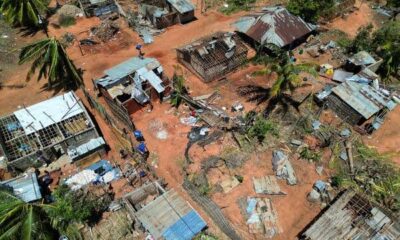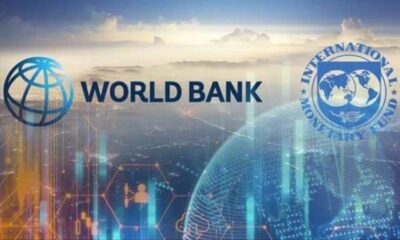Strictly Personal
How we lost Buhari by Emmanuel Aziken
Published
3 years agoon
In his first press interaction with the Lagos press in 2015, just after he was inaugurated minister of information, Alhaji Lai Mohammed, in an off-the-record conversation with correspondent disclosed that President Muhammadu Buhari was looking for his first appointee to use as a scapegoat for his anti-corruption war.
Mohammed said so against the background of the fact that anti-corruption was one of three major planks on which the Buhari government campaigned for office.
The other planks were economy and security. With the administration’s record in those two sectors fantastically below average at best, the remaining leg left of the tripod to hold on to the Buhari personae had been his vaunted phobia for corruption.
However, in the last week, that personae quickly evaporated after two landmark actions that took place under the president’s nose.
The first was the pardon granted former Governors Joshua Dariye and Jolly Nyame which transformed them from convicted felons to saints. That whitewash followed the conviction of both men by appropriate courts on charges of corruption while in office as governors.
The prosecution of the two men also followed years of diligent investigation that consumed a substantial amount of taxpayers’ resources. That was also followed by resources expended in the course of their trial.
While many are lamenting the time and money wasted in the process, others are also looking at the more emotional cost on the part of the prosecution agencies. The scorn and mockery that the anti-corruption agencies and their officers have been subjected to in the nullification of their efforts must be considerate.
In other lands such diligent investigation and prosecution would ordinarily have earned the anti-corruption officials laurels and commendations, perhaps to run for political office. However, under the stroke of President Buhari’s pardon, they have been turned into objects of mockery.
Even more, the lesson from Buhari’s cohabitation with these former felons is that it would encourage other governors enmeshed in corruption to believe that one can easily wriggle out if convicted. Indeed, rather than deter corruption, President Buhari has by his action encouraged the corrupt to be more wanton in their deeds.
Alas, seven years after Lai Mohammed promised that Buhari was looking for the first official to make a scapegoat, the reverse is the case. Indeed, the once famed Buhari is now in cahoots with the corrupt in setting the agenda of the polity.
One of the former felons now pardoned by Buhari, it was gathered, is set to contest a Senate seat to position himself as a lawmaker. Indeed, a lawbreaker turned lawmaker who would sooner than later be called Distinguished Senator. He may even be appointed to chair the committees supervising the anti-graft agencies.
The second development that melted the Buhari personae was the decision to impose a N100 million levy on the purchase of forms by presidential candidates of the ruling All Progressives Congress, APC.
The decision by the APC inevitably puts it that only the super rich could afford to purchase the forms. Your correspondent is seeking to know the Nigerian who worked and laboured hard for N100 million that would throw that to purchase a form that may not take him or her anywhere.
Already, critical stakeholders including the Peoples Democratic Party, PDP which is not even much better having placed its own form at N40 million, have lampooned the APC.
Of course many of the pretentious aspirants would come out to purchase the forms through groups as a way of distancing themselves from such ignominious expenditure.
It is, however, contradictory to the principle of egalitarian democracy for any section of the electorate to be fenced out on the basis of money as the APC has so blatantly done.
An examination of the requirements for running for public office in the United States for example, does not prescribe such high level of financial investment on forms. Emphasis is rather put more on the ability of the office seeker to mobilise signatures from a proportion of the constituency to file papers to run.
By imposing such a high levy on the forms, Buhari’s APC has made it possible that only treasury looters who are pardoned or yet to be convicted, armed robbers, kidnappers and terrorist sympathisers are able to purchase the forms.
It is a pity that Buhari sat over the proceedings where the NEC of the party rolled out these criteria to the extent that even the House of Assembly, the lowest entry point has a N2m peg.
With such atrocious policies enunciated under the supervision of Buhari, genuine stakeholders who once looked to the president and believed his words that “if we don’t kill corruption, that corruption will kill Nigeria,” are now looking askance. They are asking what happened to Buhari?
We have lost him.
You may like
-


Let’s merge EAC and Igad, By Nuur Mohamud Sheekh
-


African Union must ensure Sudan civilians are protected, By Joyce Banda
-


Economic policies must be local, By Lekan Sote
-


Dangote Refinery: A timely win for industrialisation, By Abiodun Alade
-


Mpox crisis: We need an equity-driven pandemic treaty, By Magda Robalo
-


Olympics had free lessons for African leaders, By Tee Nugugi
Strictly Personal
Let’s merge EAC and Igad, By Nuur Mohamud Sheekh
Published
4 weeks agoon
November 27, 2024
In an era of political and economic uncertainty, global crises and diminishing donor contributions, Africa’s regional economic communities (RECs) must reimagine their approach to regional integration.
The East African Community (EAC) and the Intergovernmental Authority on Development (Igad), two critical RECs in East Africa and the Horn of Africa have an unprecedented opportunity to join forces, leveraging their respective strengths to drive sustainable peace and development and advance regional economic integration and promote the African Continental Free Trade Area (AfCFTA).
Already, four of the eight Igad member states are also members of the EAC and, with Ethiopia and Sudan showing interest, the new unified bloc would be formidable.
Igad’s strength lies in regional peacemaking, preventive diplomacy, security, and resilience, especially in a region plagued by protracted conflicts, climate challenges, and humanitarian crises. The EAC, on the other hand, has made remarkable strides in economic integration, exemplified by its Customs Union, Common Market, and ongoing efforts toward a monetary union. Combining these comparative advantages would create a formidable entity capable of addressing complex challenges holistically.
Imagine a REC that pairs Igad’s conflict resolution strengths with the EAC’s diplomatic standing and robust economic framework. Member states of both are also contributing troops to peacekeeping missions. Such a fusion would streamline efforts to create a peaceful and economically prosperous region, addressing the root causes of instability while simultaneously promoting trade investment and regional cooperation.
These strengths will be harnessed to deal with inter-state tensions that we are currently witnessing, including between Ethiopia and Somalia over the Somaliland MoU, strained relations between Djibouti and Eritrea, and the continually deteriorating relations between Eritrea and Ethiopia.
The global economy experienced as a result of the COVID-19 pandemic, compounded by the Ukraine war and competing global crises, has strained donor countries and reduced financial contributions to multilateral organisations and African RECs. Member states, many of which are grappling with fiscal constraints, are increasingly unable to fill this gap, failing to make timely contributions, which is in turn affecting key mandate areas of Igad and EAC, and staff morale.
A merger between Igad and EAC would alleviate this financial pressure by eliminating redundancies. Shared administrative systems, integrated programmes, and a unified leadership structure would optimise resources, enabling the new REC to achieve more with less. Staff rationalisation, while sensitive, is a necessary step to ensure that limited funds are channelled toward impactful initiatives rather than duplicative overheads.
The African Union (AU) envisions a fully integrated Africa, with RECs serving as the building blocks of the AfCFTA. A unified EAC-Igad entity would become a powerhouse for regional integration, unlocking economies of scale and harmonising policies across a wider geographical and economic landscape.
This merger would enhance the implementation of the AfCFTA by creating a larger, more cohesive market that attracts investment, fosters innovation, and increases competitiveness. By aligning trade policies, infrastructure projects, and regulatory frameworks, the new REC could serve as a model for others, accelerating continental integration.
The road to integration is not without obstacles. Political will, divergent institutional mandates, and the complexity of harmonising systems pose significant challenges. However, these hurdles are surmountable through inclusive dialogue, strong leadership, and a phased approach to integration.
Member states must prioritise the long-term benefits of unity over short-term political considerations. Civil society, the private sector, the youth, and international partners also have a critical role to play in advocating for and supporting this transformative initiative.
The time for EAC and Igad to join forces is now. By merging into a single REC, they would pool their strengths, optimise resources, and position themselves as a driving force for regional and continental integration. In doing so, they would not only secure a prosperous future for their citizens and member states but also advance the broader vision of an integrated and thriving Africa.
As the world grapples with crises, Africa must look inward, embracing the power of unity to achieve its potential. A combined Igad-EAC is the bold step forward that the continent needs.
Nuur Mohamud Sheekh, a diplomatic and geopolitical analyst based in London, is a former spokesperson of the Igad Executive Secretary. X: @NuursViews
Strictly Personal
Budgets, budgeting and budget financing, By Sheriffdeen A. Tella, Ph.D.
Published
1 month agoon
November 20, 2024
The budget season is here again. It is an institutional and desirable annual ritual. Revenue collection and spending at the federal, State and local government levels must be authorised and guided by law. That is what budget is all about. A document containing the estimates of projected revenues from identified sources and the proposed expenditure for different sectors in the appropriate level of government. The last two weeks have seen the delivery of budget drafts to various Houses of Assembly and the promise that the federal government would present its draft budget to the National Assembly.
Do people still look forward to the budget presentation and the contents therein? I am not sure. Citizens have realised that these days, governments often spend money without reference to the approved budget. A governor can just wake up and direct that a police station be built in a location. With no allocation in the budget, the station will be completed in three months. The President can direct from his bathroom that 72 trailers of maize be distributed to the 36 states as palliatives. No budget provision, and no discussion by relevant committee or group.
We still operate with the military mentality. We operated too long under the military and of the five Presidents we have in this democracy, two of them were retired military Heads of State. Between them, they spent 16 years of 25 years of democratic governance. Hopefully, we are done with them physically but not mentally. Most present governors grew up largely under military regimes with the command system. That is why some see themselves as emperor and act accordingly. Their direct staff and commissioners are “Yes” men and women. There is need for disorientation.
The importance of budget in the art of governance cannot be overemphasized. It is one of the major functions of the legislature because without the consideration and authorisation of spending of funds by this arm of government, the executive has no power to start spending money. There is what we refer to as a budget cycle or stages. The budget drafting stage within the purview of the executive arm is the first stage and, followed by the authorisation stage where the legislature discusses, evaluates and tinkers with the draft for approval before presenting it to the President for his signature.
Thereafter, the budget enters the execution phase or cycle where programmes and projects are executed by the executive arm with the legislature carrying out oversight functions. Finally, we enter the auditing phase when the federal and State Auditors verify and report on the execution of the budgets. The report would normally be submitted to the Legislature. Many Auditor Generals have fallen victim at this stage for daring to query the executives on some aspects of the execution in their reports.
A new budget should contain the objectives and achievements of the preceding budget in the introduction as the foundation for the budget. More appropriately, a current budget derives its strength from a medium-term framework which also derives its strength from a national Development Plan or a State Plan. An approved National Plan does not exist currently, although the Plan launched by the Muhammadu Buhari administration is in the cooler. President Tinubu, who is acclaimed to be the architect of the Lagos State long-term Plan seems curiously, disillusioned with a national Plan.
Some States like Oyo and Kaduna, have long-term Plans that serve as the source of their annual budgets. Economists and policymakers see development plans as instruments of salvation for developing countries. Mike Obadan, the former Director General of the moribund Nigeria Centre for Economic and Management Administration, opined that a Plan in a developing country serves as an instrument to eradicate poverty, achieve high rates of economic growth and promote economic and social development.
The Nigerian development plans were on course until the adoption of the World Bank/IMF-inspired Structural Adjustment Programme in 1986 when the country and others that adopted the programme were forced to abandon such plan for short-term stabilisation policies in the name of a rolling plan. We have been rolling in the mud since that time. One is not surprised that the Tinubu administration is not looking at the Buhari Development Plan since the government is World Bank/IMF compliant. It was in the news last week that our President is an American asset and by extension, Nigeria’s policies must be defined by America which controls the Bretton Woods institutions.
A national Plan allows the citizens to monitor quantitatively, the projects and programmes being executed or to be executed by the government through the budgeting procedure. It is part of the definitive measures of transparency and accountability which most Nigerian governments do not cherish. So, you cannot pin your government down to anything.
Budgets these days hardly contain budget performance in terms of revenue, expenditure and other achievements like several schools, hospitals, small-scale enterprises, etc, that the government got involved in successfully and partially. These are the foundation for a new budget like items brought forward in accounting documents. The new budget should state the new reforms or transformations that would be taking place. Reforms like shifting from dominance of recurrent expenditure to capital expenditure; moving from the provision of basic needs programmes to industrialisation, and from reliance on foreign loans to dependence on domestic fund mobilisation for executing the budget.
That brings us to the issue of budget deficit and borrowing. When an economy is in recession, expansionary fiscal policy is recommended. That is, the government will need to spend more than it receives to pump prime the economy. If this is taken, Nigeria has always had a deficit budget, implying that we are always in economic recession. The fact is that even when we had a surplus in our balance of payment that made it possible to pay off our debts, we still had a deficit budget. We are so used to borrowing at the national level that stopping it will look like the collapse of the Nigerian state. The States have also followed the trend. Ordinarily, since States are largely dependent on the federal government for funds, they should promote balanced budget.
The States are like a schoolboy who depends on his parents for school fees and feeding allowance but goes about borrowing from classmates. Definitely, it is the parents that will surely pay the debt. The debt forgiveness mentality plays a major role in the process. Having enjoyed debt forgiveness in the past, the federal government is always in the credit market and does not caution the State governments in participating in the market. Our Presidents don’t feel ashamed when they are begging for debt forgiveness in international forum where issues on global development are being discussed. Not less than twice I have watched the countenance of some Presidents, even from Africa, while they looked at our president with disdain when issues of debt forgiveness for African countries was raised.
In most cases, the government, both at the federal and state cannot show the product of loans, except those lent by institutions like the World Bank or African Development Bank for specific projects which are monitored by the lending institutions. In other cases, the loans are stolen and transferred abroad while we are paying the loans. In some other cases, the loans are diverted to projects other than what the proposal stated. There was a case of loans obtained based on establishing an international car park in the border of the State but diverted to finance the election of a politician in the State. The politician eventually lost the election but the citizens of the State have to be taxed to pay the loan. Somebody as “Nigeria we hail thee”.
Transformation in budgeting should commence subsequently at the State and federal level. Now that local government will enjoy some financial autonomy and therefore budgeting process, they should be legally barred from contracting foreign loans. They have no business participating in the market. They should promote balanced budget where proposed expenditures must equal the expected revenues from federal and internal sources. The State government that cannot mobilise, from records, up to 40 percent of its total budget from IGR should not be supported to contract foreign loans. The States should engage in a balanced budget. The federal government budget should shift away from huge allocations to recurrent expenditure towards capital expenditure for capital formation and within the context of a welfarist state.
Sheriffdeen A. Tella, Ph.D.
EDITOR’S PICK
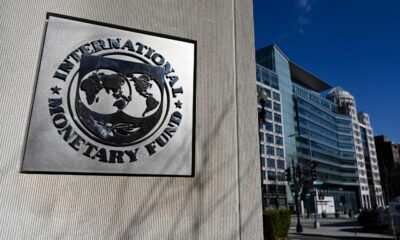

IMF, Egypt reach agreement for fourth review of Egypt’s $1.2 billion loan request
Egypt and the International Monetary Fund (IMF) have reached a staff-level agreement over the fourth review of the Extended Fund...


Libya’s eastern govt accepts petrol subsidy elimination
In a recent statement, the eastern government of Libya claimed it had reached a consensus on a plan to eliminate...


World Bank suspends loan fees for impoverished countries
To lower borrowing costs for vulnerable nations, the World Bank has announced the elimination of several loan fees. The action...
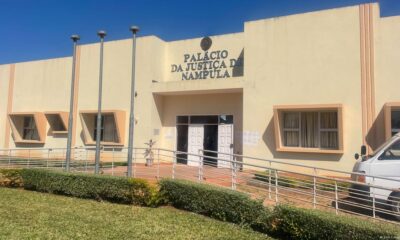

Mozambique’s top court affirms governing party’s victory in recent election
The highest court in Mozambique affirmed Monday that the incumbent Frelimo party won the October election, sparking widespread demonstrations from...


Nigeria resumes mining in Zamfara state
According to the mining minister, Nigeria has removed a five-year restriction on mining exploration in the northwest state of Zamfara,...
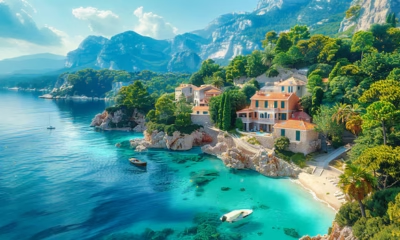

Russian Foreign Ministry claims cargo ship sinks in Mediterranean following explosion
The Russian Foreign Ministry reported Tuesday that two crew members are still unaccounted for after an explosion tore through the...
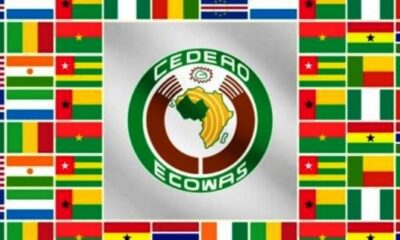

Alliance of Sahel States opposes ECOWAS disengagement schedule
The Economic Community of West African States (ECOWAS) withdrawal timeline has been rejected by the Alliance of Sahel States (AES),...
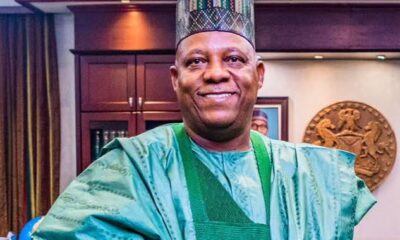

Nigeria’s future is very bright, we’ll overcome challenges, VP Shettima says
Nigeria’s Vice President, Kashim Shettima, has expressed his belief and optimism that the future of the country is very bright...
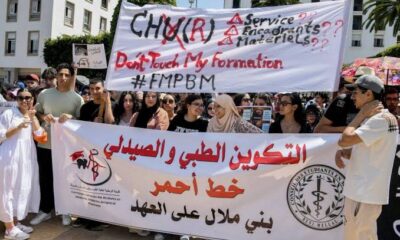

Moroccan doctors stage nationwide protest in ‘Week of Anger’
Moroccan doctors across the country on Tuesday staged a nationwide protests in what is known as “Week of Anger,” accusing...


Zambian drug agency declares ex-President Lungu’s daughter wanted
The Zambian Drug Enforcement Commission (DEC) has declared the daughter of former president Edgar Lungu, Tasila Lungu, wanted in connection...







